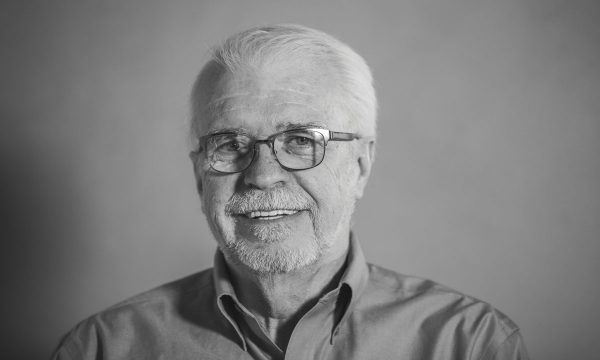Musings about the new president, disruption and the changing of the guard
I was fortunate enough to attend, and participate on a panel discussion at the 2017 Canadian Automobile Dealers Association Summit held on February 15th, which was, coincidentally my 55th birthday — I’m telling you about my date of birth for a reason that will become apparent as this column unfolds.
The CADA Summit was a huge success with an over-capacity crowd absorbing insights from dealers, economists, futurists, OEMs and even an environment minister.
I think the real treat for all in attendance, however, was the keynote delivered by conservative political pundit, David Frum.
What became apparent over the course of the day and especially into the evening dialogue with Frum, is the colossal disruption that has occurred south of the border with the election of Donald J. Trump.
As has been evident since November 8, 2016, this disruption is not only localized to the U.S. or North America, but has been felt and experienced on a global scale.
The 45th President of the United States has announced unprecedented policies and positions for his country; leaders are thus at a loss at how to deal with the global superpower that has suddenly become both unfamiliar and unpredictable.
A key point of interest is the Dow Jones Industrial Average. In one month after Trump’s inauguration on Jan. 20, the Dow advanced more on a percentage basis than under Barack Obama, Bill Clinton, George W. Bush, or Ronald Reagan.
As March 1st arrived, who would
have imagined the DJIA would have soared from 18,333 points on election day to 21,116?
The stock market rally has been based largely on what Trump says he is going to do, as opposed to what he has actually done.
In fact, the president’s full cabinet has not yet even been confirmed — congress can still derail the president’s plans.
Nonetheless, the stock market has continued its upward tick.
We see the same phenomenon in the automotive industry with respect to the disruptors currently facing the industry that were aired and discussed at length at the CADA summit.
Some in our industry believe all we have to do is build more battery electric vehicles and people will be snapping them up; or that by 2020 we’ll all be going to and from work in fully automated vehicles; or that by the mid-2020’s the local auto dealership as we know it, will be
an anachronism.
As with the stock market and Trump, all of these recent industry disruptors are based more on rhetoric and what folks might like to see happen, versus the reality.
Certainly, there are optimists and pessimists with respect to how quickly each of these automotive industry disruptors will reach a tipping point and become the norm.
Please don’t read my comments as a denunciation of electric vehicles, automated vehicles or new business models for retailing vehicles — I’m merely trying to suggest that the optimists sometimes forget that at the heart of all of these disruptive changes are people (consumers) and the pace at which these changes will take place, ultimately depend on their preferences.
I mentioned my birthday at the beginning of this column to point out another less obvious disruptor for the automotive industry in Canada — people.
Within the membership of my association there are folks in key executive and senior leadership positions who have spent entire careers with their respective organizations and are now collectively reaching retirement age. The coming mass exodus from the OEMs also has
the potential to create significant disruption within the industry as a wealth of corporate and industry knowledge retires.
After 20 years of leadership under Rick Gauthier, CADA has a new leader in John White.
At the Canadian Vehicle Manufacturers Association my former boss, Mark Nantais, has led the association for most of the 33 years he has worked there. Likewise, David Worts has been the only Executive Director that the Japan Automobile Manufacturers Association of Canada has ever known since it started operating here in 1984.
Our colleague Jacques Béchard has been running La Corporation Des Concessionaires d’Automobile du Québec for close to 30 years.
Having just turned 55 myself on February 15th, it’s hard to believe I am heading into my 31st year in the industry and 13th as head of the Global Automakers of Canada — I spent the preceding 18 years at the Canadian Vehicle Manufacturers’ Association.
However, between Rick Gauthier, Mark Nantais, David Worts, Jacques Béchard, Dennis DesRosiers and myself, there is a significant wheel-base of industry knowledge and expertise that will be heading for the door about the same time as the long-serving senior executives within many of the OEMs will also be doing so.
While I have every confidence in the next generation — I do believe that transformation comes out of chaos — this human resources disruptor in the Canadian auto industry seems to be a fairly significant upcoming issue that is flying under the radar.
But perhaps this is required to ensure that the Canadian automotive industry can embrace other, media-attention-grabbing disruptors.
After all, it was Einstein that noted, “We cannot solve our problems with the same thinking we used when we created them.”










